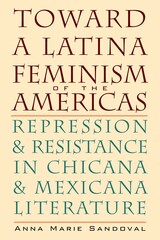Paper: 978-0-8166-5972-2
Social Forces in Southeast Asia was first published in 1949. Minnesota Archive Editions uses digital technology to make long-unavailable books once again accessible, and are published unaltered from the original University of Minnesota Press editions.
"Forces are at work in Southeast Asia which deserve the most judicious attention of diplomats, the best analysis by social scientists, and a highly serious interest on the part of all responsible people in the Western World."
The application of cultural anthropology to problems of world politics and economics presented here has been made by a ranking authority in the field. Dr. Du Bois is the author of The People of Alor and before World War Two she was anthropologist at Sarah Lawrence College. During the war she was associated with the Office of Strategic Services in charge of Indonesian and South Asian research, with headquarters at Kandy, Ceylon. Since October 1945 she has been chief of the Southern Areas Branch, Office of Intelligence Research, Department of State.
Siam, Burma, French Indochina, Malaya, and Indonesian Archipelago, and the Philippines offer a geographic unit rich in material for the social scientist, including, as it does, more diverse cultural strains than any other area of the world. The author considers the impact of European colonization on the region, analyzes the tensions created by value difference between East and West, and offers predictions on the course Southeast Asia will take in the future.
Dr. Du Bois has risen above statistical science and narrow specialization to wide interpretation and application. The book is full of exciting theses and suggestive ideas which should open new areas for both factual investigation and creative speculation.
Dr. Du Bois sees a growing consciousness of nationality in these states of Southeast Asia—and eagerness to work out their common problems and a desire to participate in the United Nations, but she does not minimize the grave economic difficulties of the area or the chance that it will become another powder keg if the states become pawns of the big powers.
See other books on: Anthropology | Cultural & Social | Du Bois, Cora | Social Science | Southeast Asia
See other titles from University of Minnesota Press












